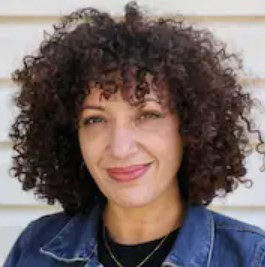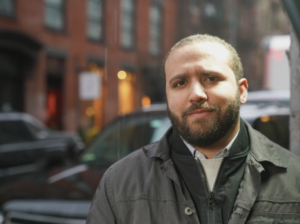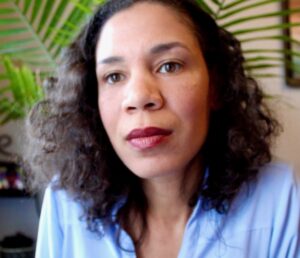Hate in the Headlines: Journalism and the Challenge of Extremism

Click here to view a recording of the event.
As extremism has increasingly penetrated mainstream politics, journalists, especially political reporters, face new challenges.
Some news organizations have dramatically reframed coverage and created new beats to track the surge in extremism, but fundamental changes are still needed if audiences are to get a full and accurate view of how anti-democratic forces are infusing civic life, from local school board meetings to nationwide elections. A recent report published by PEN America, Hate in the Headlines, found that without hypervigilance from journalists and editors, propaganda and disinformation can slide into reporters’ stories, especially as extremists deliberately target them to convey their messages to the broader public. But the report also identified lessons learned as journalists have reckoned with this shifting political landscape, and from reporters who have long covered extremism.
Join PEN America and the National Press Club Journalism Institute for a virtual discussion of how the mainstreaming of political extremism is affecting journalism, and how journalists and newsrooms are–or could be–shifting their practices in response.
Please contact Hannah Waltz with any questions or concerns, including accessibility requests, at [email protected].
Thanks to our co-hosts, the National Press Club Journalism Institute.

SPEAKERS
 Hannah Allam writes about extremism, domestic terrorism and national security for The Washington Post. She joined The Post in 2021 from NPR, where she was on the national security team. As a longtime foreign correspondent for McClatchy, Allam served as bureau chief in Baghdad during the Iraq War and in Cairo during the Arab Spring rebellions. She returned to the United States in 2012 and has reported extensively on U.S. foreign policy, race and religion, and the mainstreaming of extremist ideologies.
Hannah Allam writes about extremism, domestic terrorism and national security for The Washington Post. She joined The Post in 2021 from NPR, where she was on the national security team. As a longtime foreign correspondent for McClatchy, Allam served as bureau chief in Baghdad during the Iraq War and in Cairo during the Arab Spring rebellions. She returned to the United States in 2012 and has reported extensively on U.S. foreign policy, race and religion, and the mainstreaming of extremist ideologies.

Natalia Contreras has covered a range of topics as a community journalist including local government, public safety, immigration, and social issues. Natalia comes to Votebeat from the Austin American-Statesman, where her reporting focused on impacts of government policies on communities of color. Natalia previously reported for the Indianapolis Star, where she helped launch the first Spanish-language newsletter, and at the Corpus Christi Caller-Times. Natalia was born in Tampico, Tamaulipas, Mexico, and grew up in Corpus Christi, Texas.
 Wesley Lowery is a Pulitzer Prize-winning journalist, best selling author, podcast host and on-air correspondent. At The Marshall Project, he is among the team members working on Testify, an unprecedented effort to examine the criminal courts in his hometown of Cleveland, Ohio. As an on-air correspondent for 60 Minutes+, the streaming version of CBS News’ iconic newsmagazine, Lowery reported from protests in Minneapolis and Kenosha, aboard a crab boat in the Chesapeake Bay, and from the frontlines of the COVID-19 pandemic. Lowery has extensively chronicled police violence and the Black Lives Matter movement, and specializes in journalism that marshals data to illuminate the realities within the three branches of the American criminal legal system — police, prosecutors and prisons. Lowery spent seven years as a national correspondent for the Washington Post — where in 2015 he pitched and helped lead the Fatal Force project, an unprecedented real-time database to track fatal shootings by American police officers. The database — which remains the most reliable public data on police shootings — won the Pulitzer Prize and George Polk Award, and was named one of the decade’s top 10 works of journalism. His first book, They Can’t Kill Us All: Ferguson, Baltimore and a New Era in America’s Racial Justice Movement, a New York Times bestseller, won the 2017 Christopher Isherwood prize for autobiographical prose from the LA Times Book Prizes. Lowery has taught “The History and Future of American Journalism” at Colorado College, been a Georgetown University Institute of Politics fellow, and oversaw a team of graduate students at UC Berkeley’s Investigative Reporting Program. He is currently a journalist in residence at CUNY’s Newmark Graduate School of Journalism.
Wesley Lowery is a Pulitzer Prize-winning journalist, best selling author, podcast host and on-air correspondent. At The Marshall Project, he is among the team members working on Testify, an unprecedented effort to examine the criminal courts in his hometown of Cleveland, Ohio. As an on-air correspondent for 60 Minutes+, the streaming version of CBS News’ iconic newsmagazine, Lowery reported from protests in Minneapolis and Kenosha, aboard a crab boat in the Chesapeake Bay, and from the frontlines of the COVID-19 pandemic. Lowery has extensively chronicled police violence and the Black Lives Matter movement, and specializes in journalism that marshals data to illuminate the realities within the three branches of the American criminal legal system — police, prosecutors and prisons. Lowery spent seven years as a national correspondent for the Washington Post — where in 2015 he pitched and helped lead the Fatal Force project, an unprecedented real-time database to track fatal shootings by American police officers. The database — which remains the most reliable public data on police shootings — won the Pulitzer Prize and George Polk Award, and was named one of the decade’s top 10 works of journalism. His first book, They Can’t Kill Us All: Ferguson, Baltimore and a New Era in America’s Racial Justice Movement, a New York Times bestseller, won the 2017 Christopher Isherwood prize for autobiographical prose from the LA Times Book Prizes. Lowery has taught “The History and Future of American Journalism” at Colorado College, been a Georgetown University Institute of Politics fellow, and oversaw a team of graduate students at UC Berkeley’s Investigative Reporting Program. He is currently a journalist in residence at CUNY’s Newmark Graduate School of Journalism.
 Scott Kraft is editor at large for enterprise journalism and special projects at the Los Angeles Times, where he oversees the Investigations department, standards and practices, polling and survey research projects, and newsroom-wide reporting initiatives. During nearly four decades at The Times, Kraft has been managing editor, deputy managing editor/news and national editor, as well as a foreign and national correspondent. As an editor, he has directed work that won nine Pulitzer Prizes. As a reporter, he was a Pulitzer Prize finalist in feature writing while a New York-based national correspondent for the Associated Press before joining The Times in its Chicago bureau. He spent a decade abroad as The Times’ bureau chief in Nairobi, Johannesburg and Paris. He covered the release of Nelson Mandela and the end of apartheid as well as the ill-fated U.S. military mission in Somalia, among other major stories. His story for the Los Angeles Times magazine on the AIDS epidemic in Africa won the SPJ Distinguished Service Award for Foreign Correspondence. He has served as both a juror and chair of the Selden Ring Award for Investigative Reporting. He also was a Pulitzer Prize juror in international reporting in 2014 and subsequently chaired four Pulitzer juries – Public Service in 2015, International Reporting in 2020, Explanatory Reporting in 2021 and Illustrated Reporting and Commentary in 2022. He is currently a president of the Overseas Press Club of America.
Scott Kraft is editor at large for enterprise journalism and special projects at the Los Angeles Times, where he oversees the Investigations department, standards and practices, polling and survey research projects, and newsroom-wide reporting initiatives. During nearly four decades at The Times, Kraft has been managing editor, deputy managing editor/news and national editor, as well as a foreign and national correspondent. As an editor, he has directed work that won nine Pulitzer Prizes. As a reporter, he was a Pulitzer Prize finalist in feature writing while a New York-based national correspondent for the Associated Press before joining The Times in its Chicago bureau. He spent a decade abroad as The Times’ bureau chief in Nairobi, Johannesburg and Paris. He covered the release of Nelson Mandela and the end of apartheid as well as the ill-fated U.S. military mission in Somalia, among other major stories. His story for the Los Angeles Times magazine on the AIDS epidemic in Africa won the SPJ Distinguished Service Award for Foreign Correspondence. He has served as both a juror and chair of the Selden Ring Award for Investigative Reporting. He also was a Pulitzer Prize juror in international reporting in 2014 and subsequently chaired four Pulitzer juries – Public Service in 2015, International Reporting in 2020, Explanatory Reporting in 2021 and Illustrated Reporting and Commentary in 2022. He is currently a president of the Overseas Press Club of America.
Moderator
 Rhema Bland is a journalism talent acquisition specialist at McClatchy, identifying talent and developing strategies to effectively recruit a diverse array of journalists into the company. She was previously the director of the Ida B. Wells Society for Investigative Reporting, which seeks to increase the ranks, retention and profile of reporters and editors of color in the field of investigative reporting. Bland graduated from the University of Connecticut and earned a master’s degree at Columbia University’s Graduate School of Journalism. She is a veteran journalist and producer, working for CBS News, New York Daily News, Pensacola News Journal, WJCT Radio and The Florida Times-Union, before moving into higher education. She joined the staff of Florida Gulf Coast University in 2016, where she was the adviser for its student media program. She also directed the media program at East Carolina University and has taught in the journalism programs of the University of North Florida, Florida Gulf Coast University and the University of North Carolina at Chapel Hill.
Rhema Bland is a journalism talent acquisition specialist at McClatchy, identifying talent and developing strategies to effectively recruit a diverse array of journalists into the company. She was previously the director of the Ida B. Wells Society for Investigative Reporting, which seeks to increase the ranks, retention and profile of reporters and editors of color in the field of investigative reporting. Bland graduated from the University of Connecticut and earned a master’s degree at Columbia University’s Graduate School of Journalism. She is a veteran journalist and producer, working for CBS News, New York Daily News, Pensacola News Journal, WJCT Radio and The Florida Times-Union, before moving into higher education. She joined the staff of Florida Gulf Coast University in 2016, where she was the adviser for its student media program. She also directed the media program at East Carolina University and has taught in the journalism programs of the University of North Florida, Florida Gulf Coast University and the University of North Carolina at Chapel Hill.






